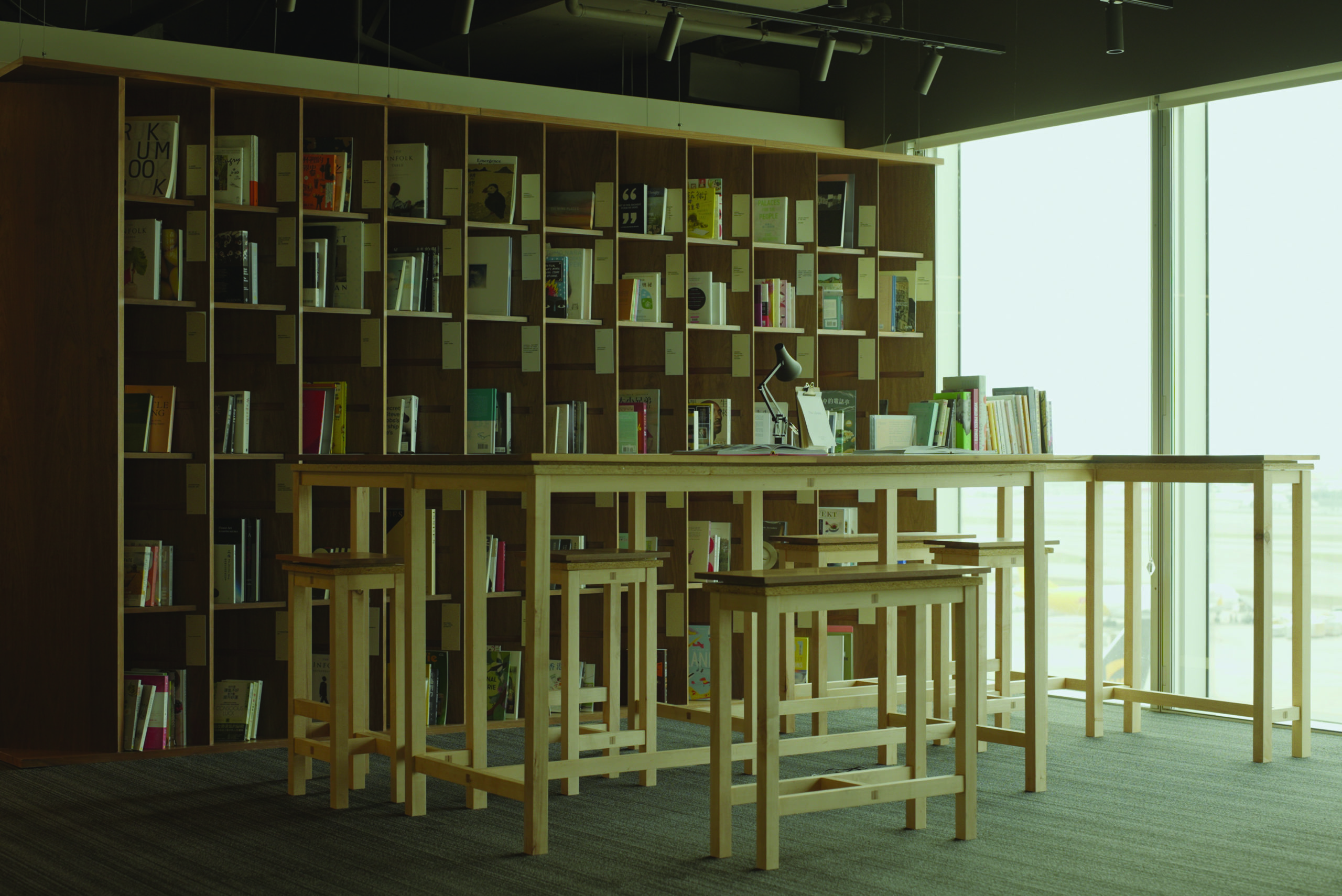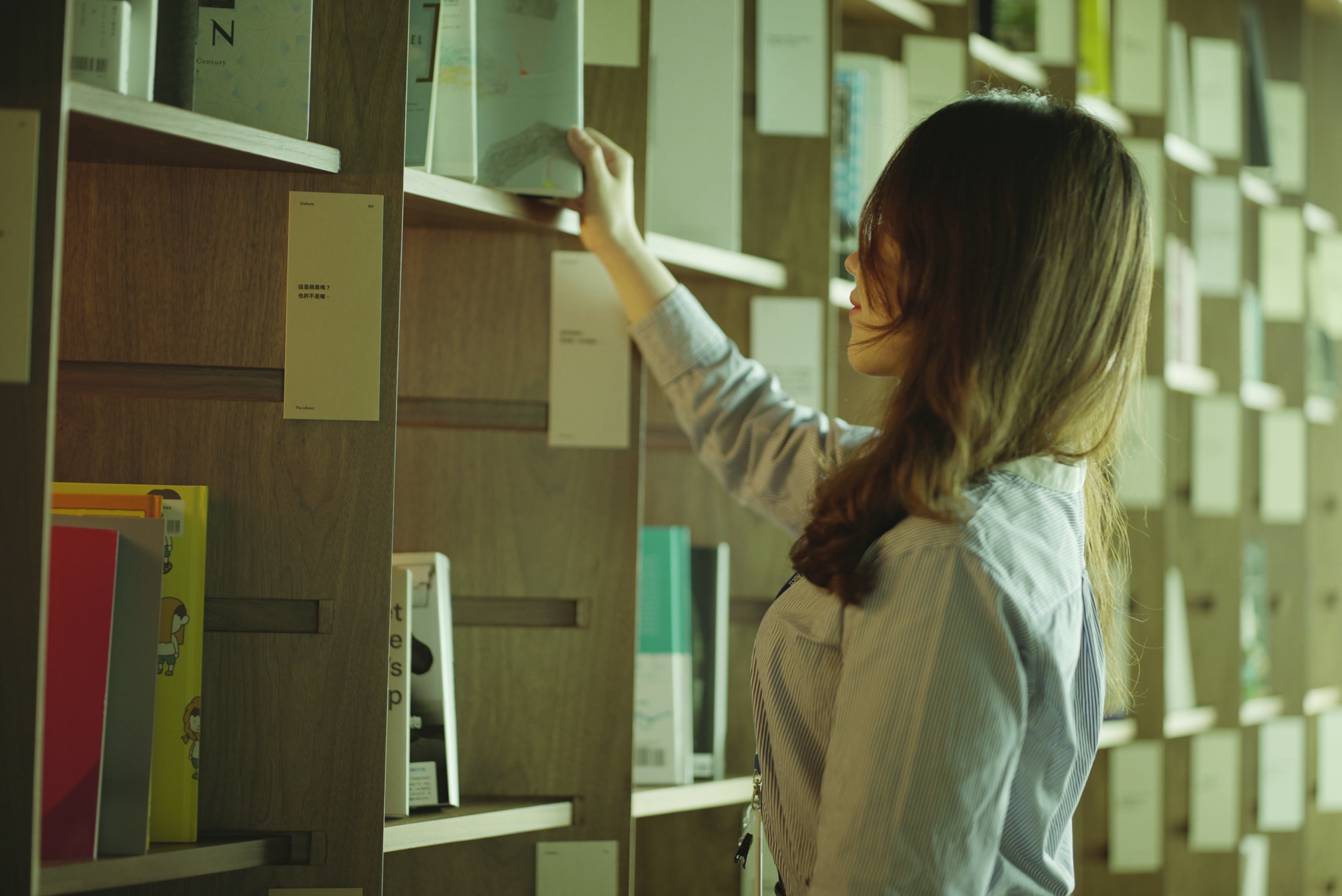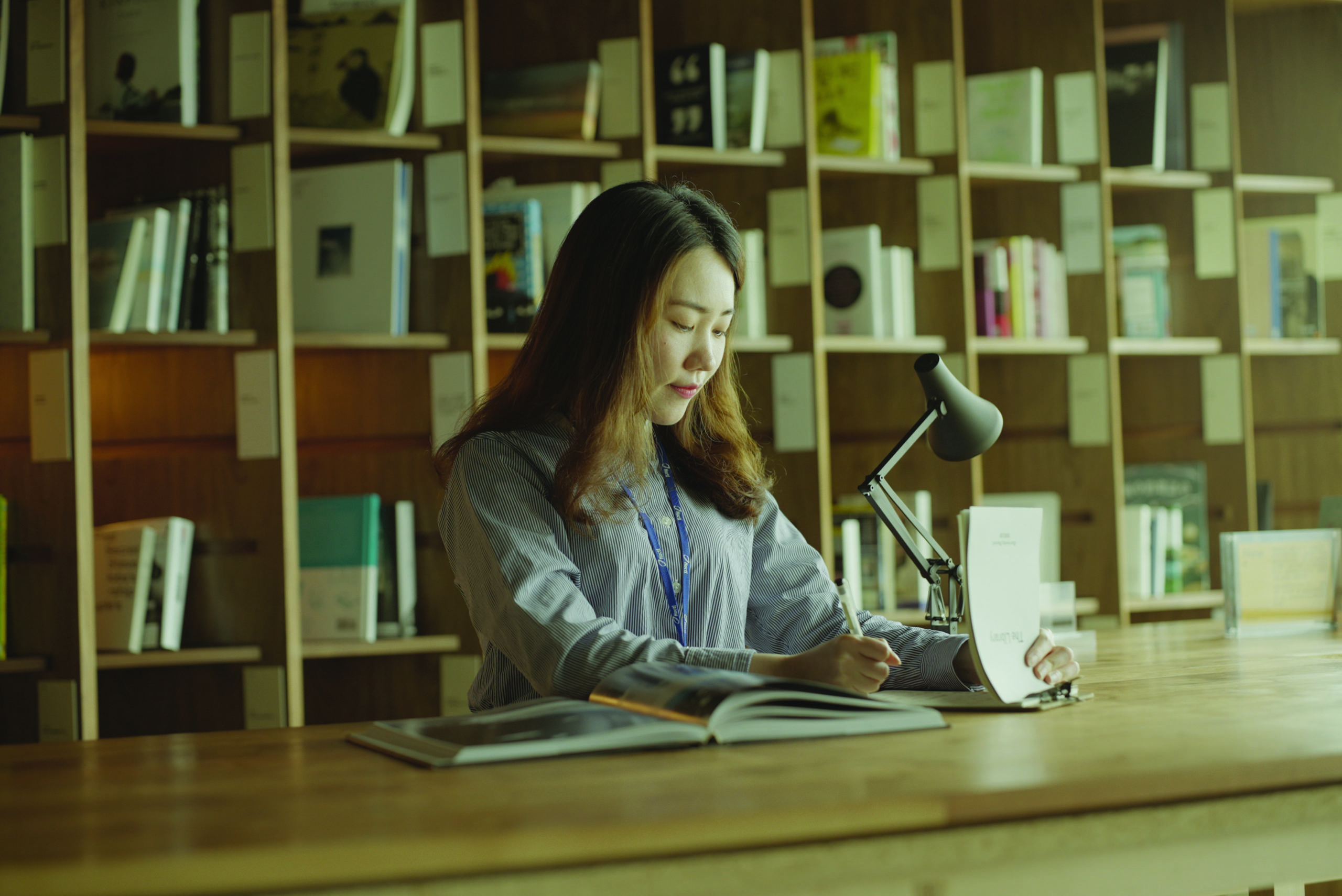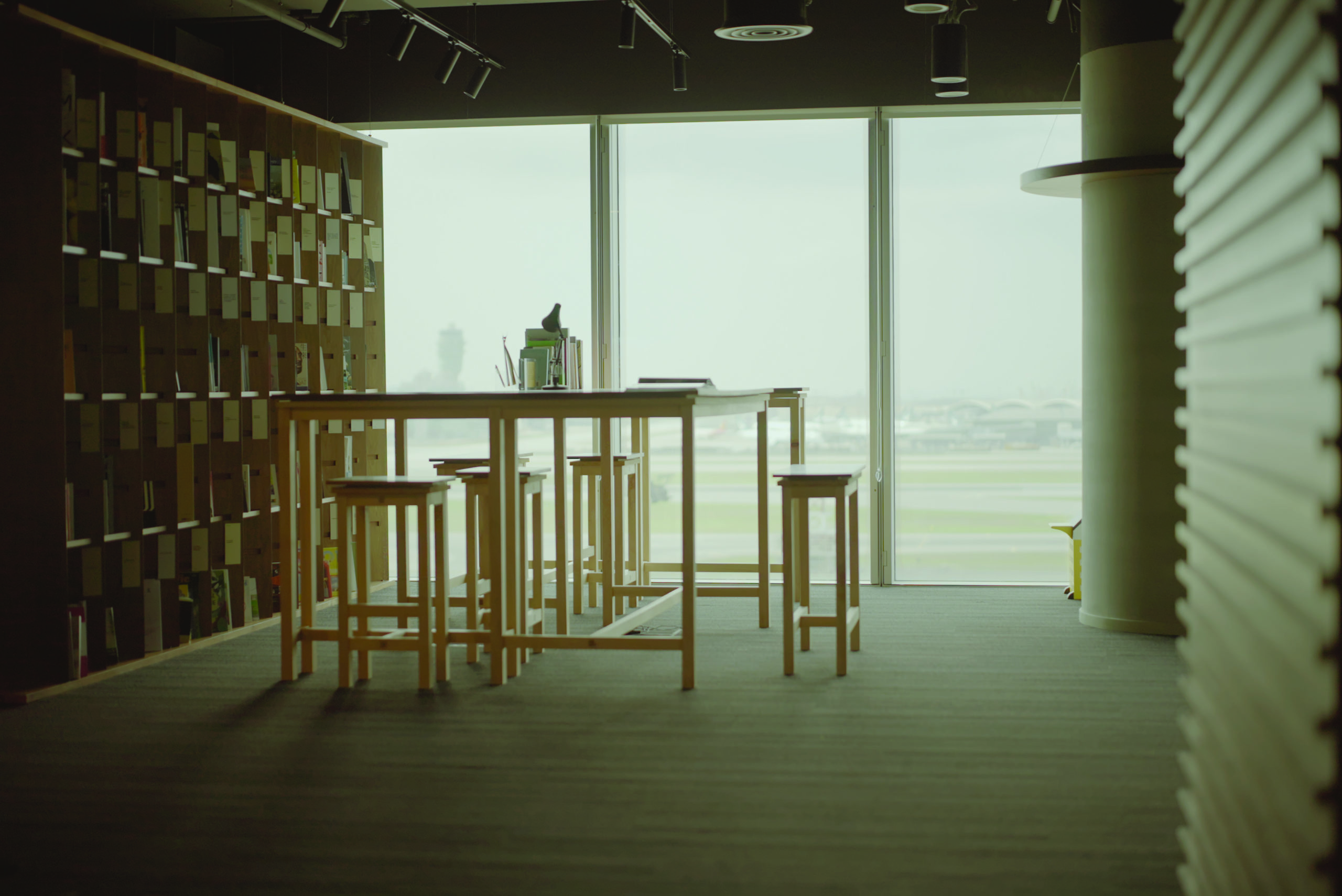One of the most visible differences in life since the pandemic began over two years ago is the substantial increase in the amount of time spent alone. With this sudden increase in me-time, some people scan the latest Netflix movie offerings nightly, while others pick up new skills through online courses. Among the many available activities, one choice has become unexpectedly popular again — reading. According to Amazon — one of the largest online retailers — 35% of the world’s population has read more books since the pandemic began. Moreover, an average of 1.5 billion people now visit e-commerce sites selling books every month: a significant increase of 8.5% compared to the pre-pandemic period.
With more and more sources of information available to us nowadays, books had seemed to be fading from our daily lives. No one could have foreseen that the world would return to reading, and rediscover the huge value that a book can give. So what kind of bookshelf is needed in this complex world in which we live? And what is the unique experience that only a book can provide, compared to other media?

“If bookshelves reveal personality, then the bookshelves in an office can equally represent, to a certain extent, the company’s ethos and vision. ”
The bookshelf: a window on your personality
People who run bookshops believe you can tell a lot about an individual’s personality by the books on his or her shelves, and even the way they are arranged. Karl Lagerfeld, the famous fashion designer, clearly subscribes to this view: in his two-storey studio, he has a variety of unusual books stacked in different corners. Whenever he starts to work, these books become his inspiration and a constant source of ideas.
The founder of Apple, Steve Jobs, had a completely different reading habit. From the time he dropped out of university until his death in 2011, he spent time alone every year, re-reading a book called Autobiography of a Yogi. Jobs cherished this book for one simple reason — it allowed him to escape the distractions of the outside world and see the things that were truly valuable to him.
If bookshelves reveal personality, then the bookshelves in an office can equally represent, to a certain extent, the company’s ethos and vision. At the end of last year, the refurbishment of the Hactl offices was completed. The design and furnishings of the new offices deliberately incorporate people-oriented and sustainable features - and The Library is one of them. A local independent bookstore was invited to design and curate the contents of the bookshelves - with Life Model (biography of celebrities, school of life, how to live and team building materials), Culture (demonstrating the linking of various cultures), Values (the examination of diverse environmental values) and Family Special (books that can be read with children) forming the four pillars of The Library. In addition to work inspiration, the bookshelves are intended to provide staff with various suggestions on how to shape their own ideal lives.
“When The Library first opened, I quickly found a few books that seemed like they were designed for me,” explains Roy from the Information Services. “It was a collection of books that looked at everyday items such as toilet paper, plumbing, cups and clocks from a new perspective. It rekindled my curiosity about life, and I discovered a lot of details in my office that I hadn’t noticed before,” he adds.
Each bookshelf is totally distinctive and therefore unlikely to be found elsewhere. It is important to first understand the character of the space and then to further stimulate the imagination of the user with the right selection of books.
It was a chance to open a page, and reveal your inner thoughts and feelings. So, even without taking the book away with you, you have taken away the very best that a book can give.

Prescription for life
Another book-themed activity, Omakase, is a tailor-made activity to encourage staff to read more, to broaden their horizons and at the same time cultivate their temperament and relieve work pressure. Omakase is a Japanese word that means “please!”. Customers put themselves in the hands of experts and let these professionals to take them on a journey into the unknown. To deliver this experience of “trust”, Hactl worked with Book Director Nathan Lee (Nathan) to create a questionnaire about staff lives. Based on each participant’s feedback, Nathan then provided them with a written “prescription”, for which he had selected a number of books tailored to their specific needs.
Nathan, the Book Director, did not know any of the participants personally. As he read the questionnaires, he described it as meeting a new person for the first time, but it seemed like they had known each other for a long time. “We are all used to showing our strong, hard-working side, but everyone has problems and mixed emotions in their lives. If you choose the right book, you’ll find that other people are facing similar situations and no one is really alone.” Nathan describes a library or bookshop as a vast forest, and himself as the guide who knows the clues and trails, leading everyone to a tree worth looking at, or perhaps a few beautiful views.
Kenneth from Engineering and Facilities Services, who is always trying to challenge himself and achieve a breakthrough in his life, received a copy of Armstrong’s biography First Man: The Life of Neil A. Armstrong in his prescription. Hannah from Corporate Communications, a keen traveller, said in her questionnaire that she was bored because she hadn’t visited abroad for so long. She received a copy of a French novel entitled Les gens heureux lisent et boivent du café (Happy People Read and Drink Coffee). “It was a great surprise for me,” she says. “Reading it during the pandemic was like going on a rejuvenating trip. I felt very light physically and mentally.”
After Michelle from Human Resources received an illustrated book of Pixar’s animated film, Soul, she set aside a weekend afternoon to watch the entire film with her daughter. In the film, she discovered thoughts that she had always wanted to share with her daughter, but could not put into words. Michelle hopes that at some point in her daughter’s life, she will remember the film and understand what her mother wanted to convey.
Beyond knowledge, there are many indescribable experiences we can enjoy through books. Books can be closely linked to life and help each person to solve their internal problems. In effect, a book is like a prescription for life.

Working in a book-filled environment
Not everyone has the time to read page after page of books while at work. But everyone still derives benefit from the bookshelves. Felix from Finance has little time to read at work, but when he walks through The Library en route to the pantry, he scans the covers of the books. In this way, he found an interesting book about the strange and distinctive customs and practices to be found at toilets around the world. Most of the respondents also say that The Library has proven an effective way to regulate the rhythm of their work. Just hearing the sound of the pages being turned relaxes the mind.
In the office, books also facilitate interpersonal connections. Since the outbreak of the pandemic, most conversations between colleagues have been about that, and the way it has affected lives. Since the introduction of The Library, however, a common thread has developed between colleagues: occasionally, they become each other’s book selectors, and then exchange the books they have read. “Or, we can think of the company library as a streaming platform where everyone can find something for themselves and share their discoveries with others,” as Jeannie from Finance puts it.
The beautiful experiences that books can deliver often go well beyond the book itself. Many people who picked up books again in the midst of the pandemic did not do so for the sake of learning alone: it was a chance to open a page, and reveal your inner thoughts and feelings. So, even without taking the book away with you, you have taken away the very best that a book can give.


